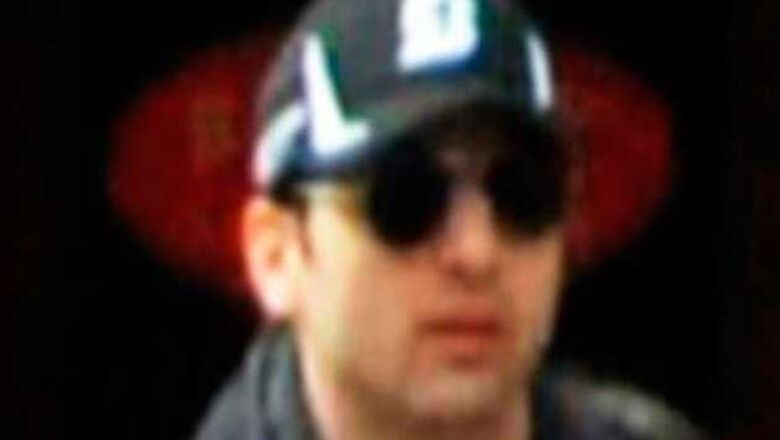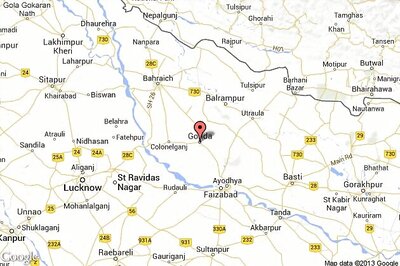
views
Makhachkala:If Tamerlan Tsarnaev was already plotting the Boston Marathon bombings when he stayed in this bustling Russian city at the heart of an Islamist insurgency in 2012, neighbours say he hid it well.
The ethnic Chechen killed in a shootout with US police last week spent at least a month last summer helping his father renovate his first-floor apartment next door to a dentistry in Makhachkala, a city in the Dagestan region on the Caspian Sea.
Neighbours say they saw little of Tsarnaev while he was staying in the run-down, five-storey apartment bloc with dirty and uneven grey-brick walls, and those who knew him saw nothing unusual.
"He was calm, intelligent, handsome - so fashionable. If you were to see him, you'd fall in love with him straight away," said Madina Abdulayeva, 45, who runs the small grocery shop across the pot-holed street where he used to come to chat.
"They say he was a fanatic. I didn't see that," she said. "We're all Muslim here. We're all part of Islam. We all pray."
She said he was busy helping his father remodel an apartment and seemed to have had no young friends. She said he spoke Russian with an American accent after living in the United States for a decade.
US investigators, who suspect Tsarnaev, 26, and his brother Dzhokhar, 19, of carrying out the bombings last week in which three people were killed, say Tamerlan spent six months in Russia in 2012.
Before emigrating, the Tsarnaev family had spent about a year in Makhachkala after moving there from Kyrgyzstan. Tamerlan's parents, Anzor and Zubeidat, have since moved back to Makhachkala from the United States.
Although few details have been released about what he did in Russia in 2012 after arriving at a Moscow airport in January, neighbours say he spent at least a few weeks in Dagestan, a predominantly Muslim region in the North Caucasus mountains.
Who he saw, what else he did, and whether he made contact with militant groups, is still not clear.
Dagestan is the focal point of the insurgency in the North Caucasus where militants wage almost daily violence to establish an Islamist state.
Residents of the city of half a million are so used to the violence that they are surprised by what they see as the fuss over the Boston bombings.
"What's there to say? We're used to this. There are bomb blasts and rebels everywhere," said Galia Sulemanan, 55, a housewife buying bread in Abdulayeva's grocery store. "Young people do this for money."
The Caucasian Knot website, which monitors the violence, says 124 people were killed and 75 wounded in the first three months of his year in predominantly Muslim Russian provinces that stretch almost from the Caspian to the Black Sea, and include Dagestan and Chechnya.
"Such things (as in Boston) are always upsetting but you know this happens every day here. We're surprised by the huge reaction," said Magomed, a young man in a black leather jacket who declined to give his full name.
"Americans think they are some kind of 'super people', like their lives are more important than others'; They're the world's police. We have enough of our own problems to worry about it."
Insurgents from the North Caucasus have carried out attacks outside the region - including on Moscow's subway and at the main international airport of Domodedovo, where 37 people were killed in a bombing in January 2011 - but not on US soil.
Many people in the region have long focused their ire on Moscow and Kremlin-backed local leaders, not on the United States, although there are clear signs of irritation in the region about some American attitudes.
"They blew up three people in the United States and people are up in arms. When they (Americans) kill 150, 200 people in Afghanistan, Iraq - why do they react differently?" asked Vagib Devletkhanov, 24, a soldier in the Russian army.
There has been no claim of responsibility for the Boston bombings from any militant group in the North Caucasus, and Chechen leader Ramzan Kadyrov, who was installed by Moscow, says there is no direct connection with the region.
Other people in the region echo his view, saying the Tsarnaev's connections with Dagestan are tenuous.
"He wasn't raised in Dagestan, he didn't grow up here. You should look for the roots of this (fundamentalism) in America," said Arsen Malayev, 54, a local journalist.
















Comments
0 comment